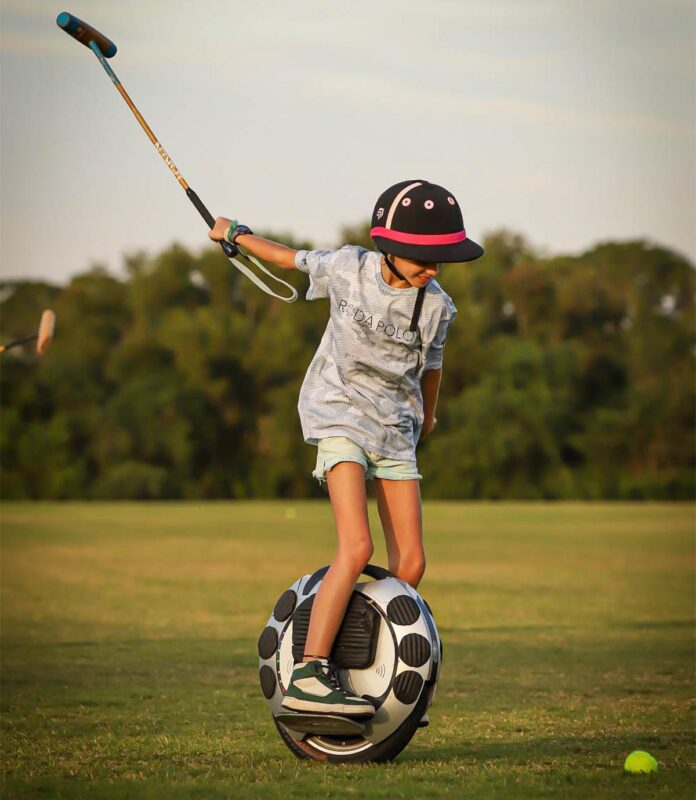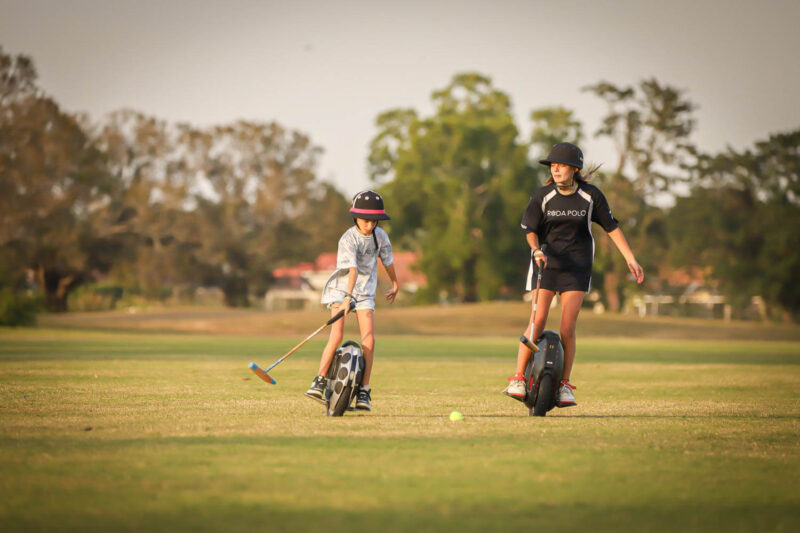
Trends
Polo—without a horse
The fast-growing sport of Roda Polo, where e-wheels sub for hooves.
When it comes to barriers to entry, there are few sports more challenging than polo (the kind with horses, not water).
Not only do you need the equipment and a regulation polo field—which, at 300 yards long, is triple the size of an American football field—but you also need a horse. And you can’t use just any horse, you need one specifically bred for polo—known as a polo pony—and really you need two of them to switch out between periods, or chukkas, as they’re called. (And, since there are four players on a team, a match requires 16 polo ponies in total).
In addition to all the horses, the field, and the equipment, you can’t even begin to learn how to play polo until you’re fairly proficient at riding a horse, so the road to becoming a professional—or recreational—polo player is one largely inaccessible if you aren’t a British monarch. That is, until now. Enter Roda Polo.
View this post on Instagram
In 2019 in Argentina—a country where polo has been a major sport for centuries—Javier Tanoira realized how increasingly cost-prohibitive the game had become and began working to find an electronic alternative.
Electric unicycles, or e-wheels—single motorized wheels with foot stands on either side that the rider balances on—were beginning to enter the worldwide market after being largely invented and produced in China.
The children of professional polo players began riding them and experimenting with using the mallet and balls of the sport while on the machines. By March of 2021, Tanoira had merged these two concepts together, creating Roda Polo, a version of polo that could be played on e-wheels instead of horses.
He built out rules, structure, and safety elements and began teaching it to kids in Argentina. “All the same elements that are so attractive in polo are maintained,” says Tanoira. It is “fast paced, full of adrenaline, team spirit, exciting and fun to watch, and fair play.”


After initially expanding to the UK, Spain, and France, fourteen countries now have Roda Polo in some capacity, with nearly 1,000 children playing in total. While the game does still require some gear and, of course, e-wheels (which cost around $1,000–$2,000 depending on the size), it doesn’t necessitate a special polo field. Any large open area will do.
E-wheels are also much easier to master than a horse. According to Maru Huerga, Academy Director of USA for Roda Polo, it takes no more than three lessons for children to get the hang of riding them (the same cannot be said of a horse). The unicycles can move up to 35 km/h—nearly as fast as polo ponies at full canter—but parents can limit the speed with an app on their phone.

And Roda Polo has made its way to New York. Meadow Brook Polo Club on Long Island is an official partner, hosting lessons and matches. Since 90 percent of players are children, lessons are geared towards kids, with matches played three on three. It welcomes new players to the game, whether or not they have their eye on eventually playing the pony-riding version. “It’s a major part of the traditional polo fabric,” says Meadow Brook’s president Dennis Dantes, “especially within the young polo community.”
Having already taken hold on three continents in less than three years, could it be the future of polo? “The sport is growing quickly,” says Huerga. “We are organizing tournaments now, but we think there will be leagues in the future.”
Now we just need to send Prince George an e-wheel.
Hero photo courtesy of Roda Polo



